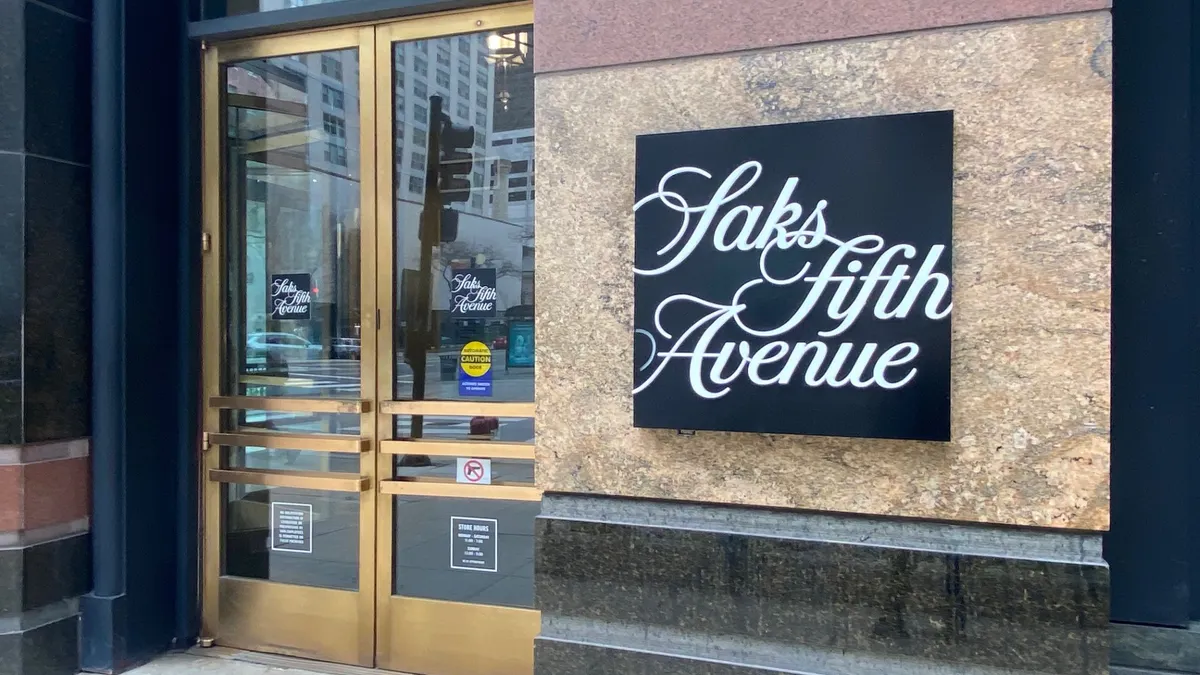If there's one thing that's become predictable at J.C. Penney in the last decade or so, it's constant change.
The company has had five chief executives in that time, each with their own ideas about how to turn over its steadily declining fortunes. That included efforts like restoring and then again ending appliance sales, and sweeping away its women's apparel inventory in hopes of an effective reset. Mired in the troubles of the department store sector plus missteps of its own, the retailer finally collapsed into bankruptcy in 2020.
The company emerged from that with new owners, yet another new CEO and, now, a new marketing campaign with the hopeful slogan "Shopping is back!"
Also back is further change, however, at least if it's true that J.C. Penney's owners — Simon Property Group and Brookfield Asset Management — have bid nearly $9 billion for rival Kohl's. The report remains unconfirmed. Simon, Brookfield and Kohl's didn't respond to questions about the deal, which was first reported by the New York Post.
But the move could disrupt J.C. Penney's plans, especially in light of the revelation that the Simon-Brookfield idea is for a single operating entity to run both retailers.
"Creating a bigger business of two struggling department stores would not magically transform the fortunes of either," GlobalData Managing Director Neil Saunders said in emailed comments. "Indeed, a successful deal would put a lot on the plate of Simon and Brookfield as the turnround of JC Penney is a very long way from being completed, and Kohl’s needs a significant amount of work as it tries to revitalize its fortunes."
The beauty of it
Along with the other upheaval of the last couple of years, J.C. Penney has watched popular beauty retailer Sephora take its shop-in-shop business to Kohl's.
After ditching its Penney partnership, the LVMH-owned retailer forged plans to run 400 Kohl's-based shop-in-shops by the end of this year and 850 by 2023.
Penney dragged Sephora to court over this, as analysts lamented that the Sephora operations were the most productive areas of its stores. But the department store has apparently made peace with it, and moved on. In an interview with The Wall Street Journal a few weeks ago, J.C. Penney CEO Marc Rosen said the concessions really didn't help much because Sephora shoppers didn't buy much else. The retailer has since developed its own beauty concept, focused in part on inclusivity and partnerships with Black founders.
"Marc Rosen’s own admission that the JCP/Sephora customer came for Sephora, but didn’t shop the rest of the store speaks volumes," Sanford Stein, founder of Retail Speak, said by email. "Sephora was about style and beauty, and the store wasn’t. However, JCP's intention to gravitate to more inclusive niche-beauty brands, catering to more ethnically diverse consumers, is probably the right move."
Kohl's may soon be coming up with a Sephora replacement as well, given that people familiar with Simon and Brookfield's plans told the Post that the tie-up would be cancelled. (Brookfield and Simon didn't immediately respond to requests for comment; a Kohl's spokesperson said the company would "not comment on any rumors or speculation.")
The return
Shopping may be back, but is it back at J.C. Penney?
In March, traffic there declined 34.4% compared to prepandemic 2019, following similar declines in February and January, according to data from footfall analytics firm Placer.ai. More difficult to know is how that translates to sales. As a private company, J.C. Penney no longer releases its quarterly earnings results, and Simon Property Group CEO David Simon has resisted analysts' suggestion that the company provide more detailed information about the performance of the retailers it now owns.
The company shared by email that it expects to reach about $9 billion in revenue this fiscal year, reflecting a 10% year-over-year jump. That result would also be in line with prepandemic 2019 "if you adjust for the change in the number of stores we have in operation today," the company said. Without adjusting for store closures, it would be a dip of 16%, according to a detail in The Wall Street Journal's report that the company declined to confirm.
"We’ve always cared deeply about our customers and we have a lot of exciting initiatives underway to make the JCPenney shopping experience even more relevant, accessible and seamless for our customers," the company said by email. "Our sheer breadth of categories and products provide families the ease of shopping at one destination."
Penney has introduced new private labels, including a workwear-oriented brand for men, a dressy line for women and a casual brand "not to be confused with athleisure." The company said by email that it has also developed apparel with inclusive sizing and adaptive features, and created its Hope & Wonder private label brand "to bring key cultural and seasonal moments to life."
Six out of seven apparel launches since January 2021 offer inclusive sizes, and the company has brought in Forever 21, Juicy Couture and Sports Illustrated, which resonate with younger customers, according to Erin Schmidt, a senior analyst at Coresight Research.
"JCPenney has been strategic in reestablishing its brand portfolio over the past year, with an emphasis on diversity and inclusive-sizing for the entire family," Schmidt said by email. "We believe this will be a differentiator for the retailer as these are underpenetrated categories in the market."
Meet Penny James
Under Rosen, who arrived in 2021 from Levi's with a quarter century of retail experience under his belt, the retailer is centering most of its attention on those who already know it well.
"Our primary focus is on better serving the 50+ million loyal customers who turn to JCPenney as the one-stop shopping destination for their families," the company said by email. "We are committed to serving the everyday needs of diverse, working American families."
That effort may be a decade late, considering the number of customers lost to Penney after radical changes ushered in by then-CEO Ron Johnson 10 years ago, according to Ray Wimer, professor of retail practice at Syracuse University's Whitman School of Management.
"Not much has been done to woo them back as JCP continued to struggle financially, ending up in bankruptcy," Wimer said by email. "I view JCP as serving value-oriented customers, much like Sears and Kohls. When Sears went under, JCP was not able to gain market share. Target, Walmart and Amazon all ... have made a push to expand their brand offerings in categories that JCP offers."
In April Penney started making a push of its own, with ads featuring "Saturday Night Live" cast member Melissa Villaseñor joyfully parading through a Penney store as a character named Penny James (a riff on founder James Cash Penney).
The ad "is wacky enough to get noticed, but whether it will speak to the intended audience is anybody’s guess," said Retail Speak's Stein "JCPenney’s best hope is to become the Dollar General of department stores, which makes some sense, given the growing economic stratification that continues unabated."
Villaseñor's zeal and her association with SNL also recall the late night show's similarly enthusiastic "Target Lady" character, notes retail consultant Brian Kelly, a veteran of department stores and ad agencies. It has a "warmed over" quality, also in part because the retailer doesn't provide much of a reason to shop there instead of where they go now, he said. Like Stein, he sees a need for Penney to speak more directly to a U.S. consumer under pressure.
"Yes, there are Penny Jameses in the world, but not near enough to keep JCP afloat," Kelly said by email. "Or keep JCP, Macy's and Kohl's all afloat. The armada of mediocrity is doomed to crash upon the ever-rising shoals of an evaporating middle class. There is little in the brand position that suggests a discrete understanding of the problems of middle America and how JCP is going to solve it."






















